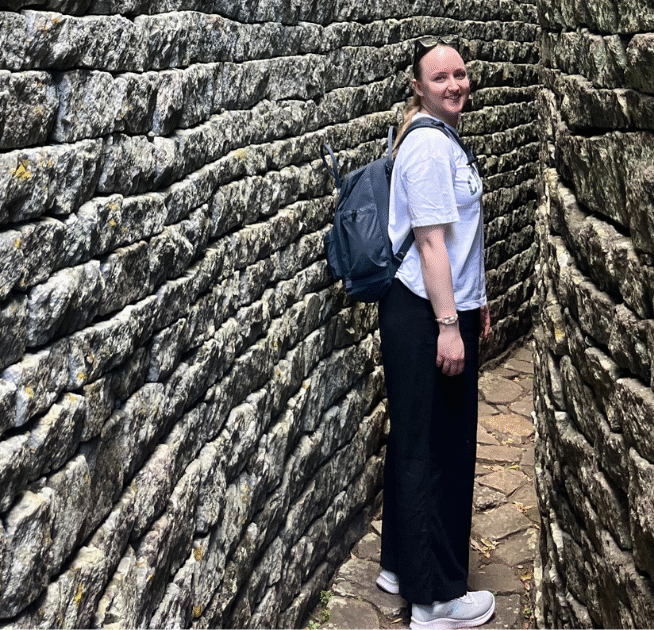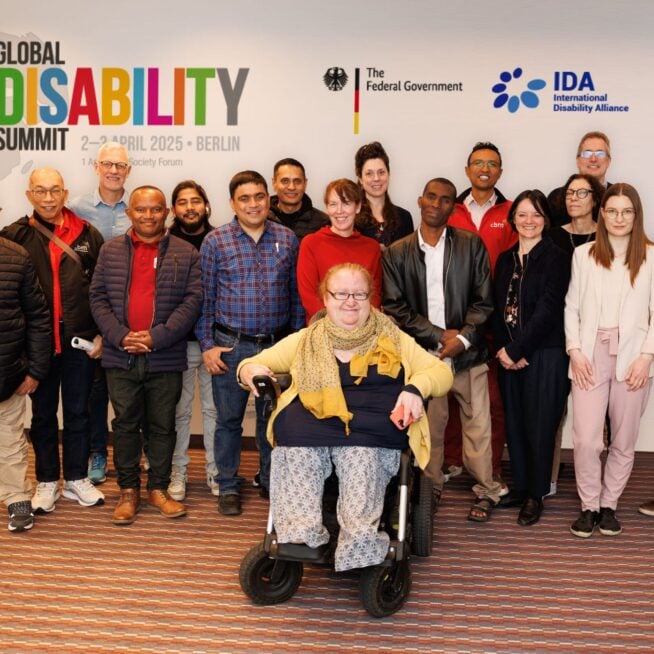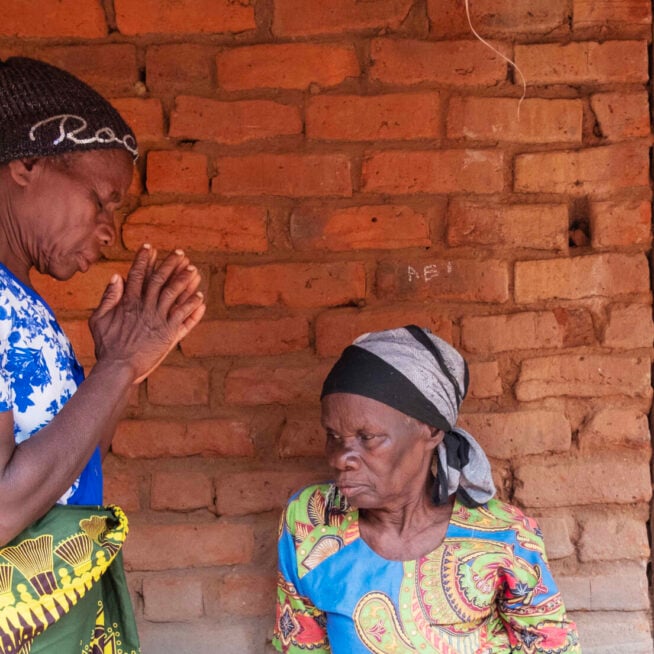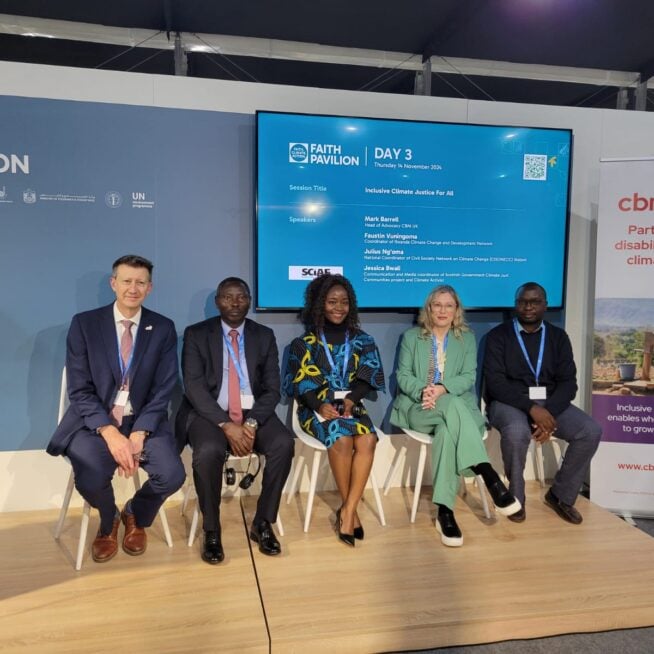Want to transform lives with us? Stay in touch and hear about our news, activities and appeals by email!
Visiting CBM’s child eye health programme in Nigeria
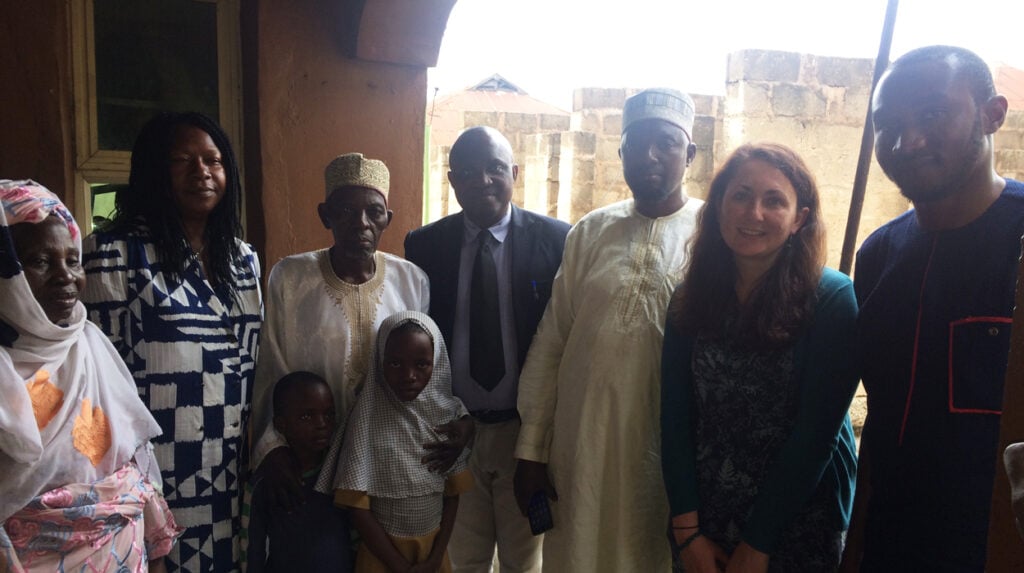
Rebecca Molyneux is CBM UK’s Programme Manager for West Africa. She recently visited CBM’s child eye health programme in Nigeria, where she met some of the teachers, community health workers and faith leaders who have been trained as part of the programme and are helping to promote the importance of child eye health in some of the poorest communities.
Earlier this month, I had a great opportunity to visit Nigeria and meet with some of the individuals putting our Seeing is Believing Child Eye Health Programme into action in Ibadan, the third largest city in Nigeria, in the South West of the country.
Children who are blind or visually impaired in Nigeria often struggle to go to school, move around safely and fulfil their potential. A lack of eye health services means that many children lose their sight because of diseases or conditions that could be treated. In partnership with Brian Holden Vision Institute, we’re working with partner hospitals in 11 states of Nigeria to prevent childhood blindness and visual impairment by improving access to eye health services. Over 3 years, 1.5 million children are expected to benefit from improved access to sight-saving eye health services through a wide range of activities, including training health and community workers, funding treatment and providing glasses and low vision devices.
We started the day in Ibadan, with an early meeting with some of the highly skilled ophthalmologists working in the hospitals supported by the programme. They perform surgeries on children with eye problems who are unable to afford eye care. After the meeting, the doctors rushed back to start their clinics and we headed out into the busy city to see how children were being identified in communities and schools in the city.
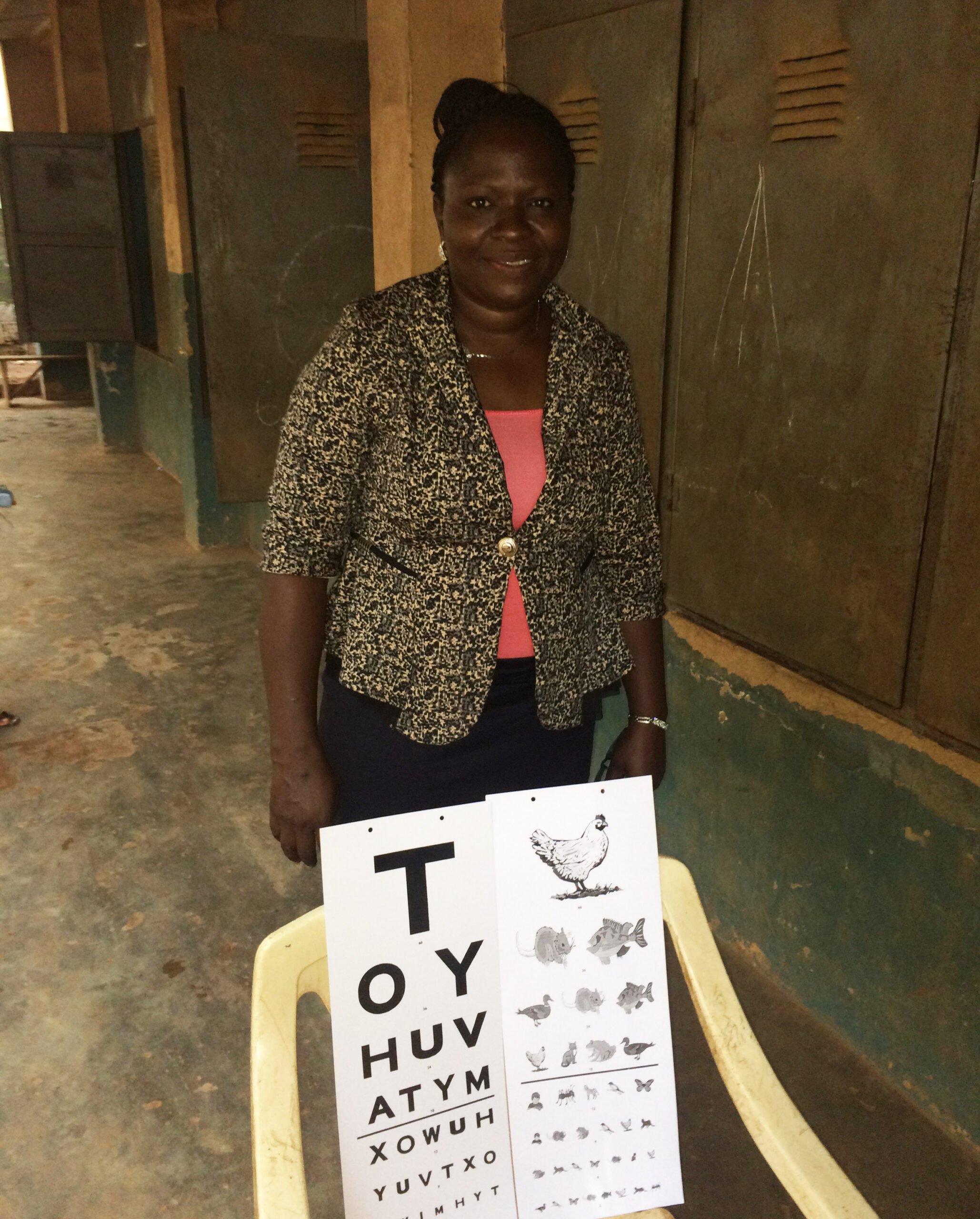
Our first visit was to an eye screening at St Andrew’s Model School (I), in the Omi-Acko Ido Local Government Area of Ibadan. Mrs Tomilola Aduke is a class teacher, who is one of two teachers in the school trained by the Seeing is Believing Child Eye Health Programme to screen pupils at the school for eye problems or vision impairment.
Mrs Aduke examines the pupils’ eyes and advises pupils and parents at the school how to take care of their eyes. She uses Snellen charts and a pen torch, and records the results in a register. Conjunctivitis, known as red eye, is one of the most common eye problems she encounters when screening children. To reach parents with eye health information, she attends PTA meetings. She will also be facilitating training for other teachers in the area, to do the same in their schools.
As we turned to leave the school, the ominous grey skies turned into a storm and torrential rain started to fall. Suddenly it seemed all of Ibadan’s 3 million people were also getting into cars and buses and trying to make it through the traffic. When we finally arrived at Apete Primary Health Centre, in Ido Local Government Area, we found 7 Community Health Extension Workers waiting to greet us.
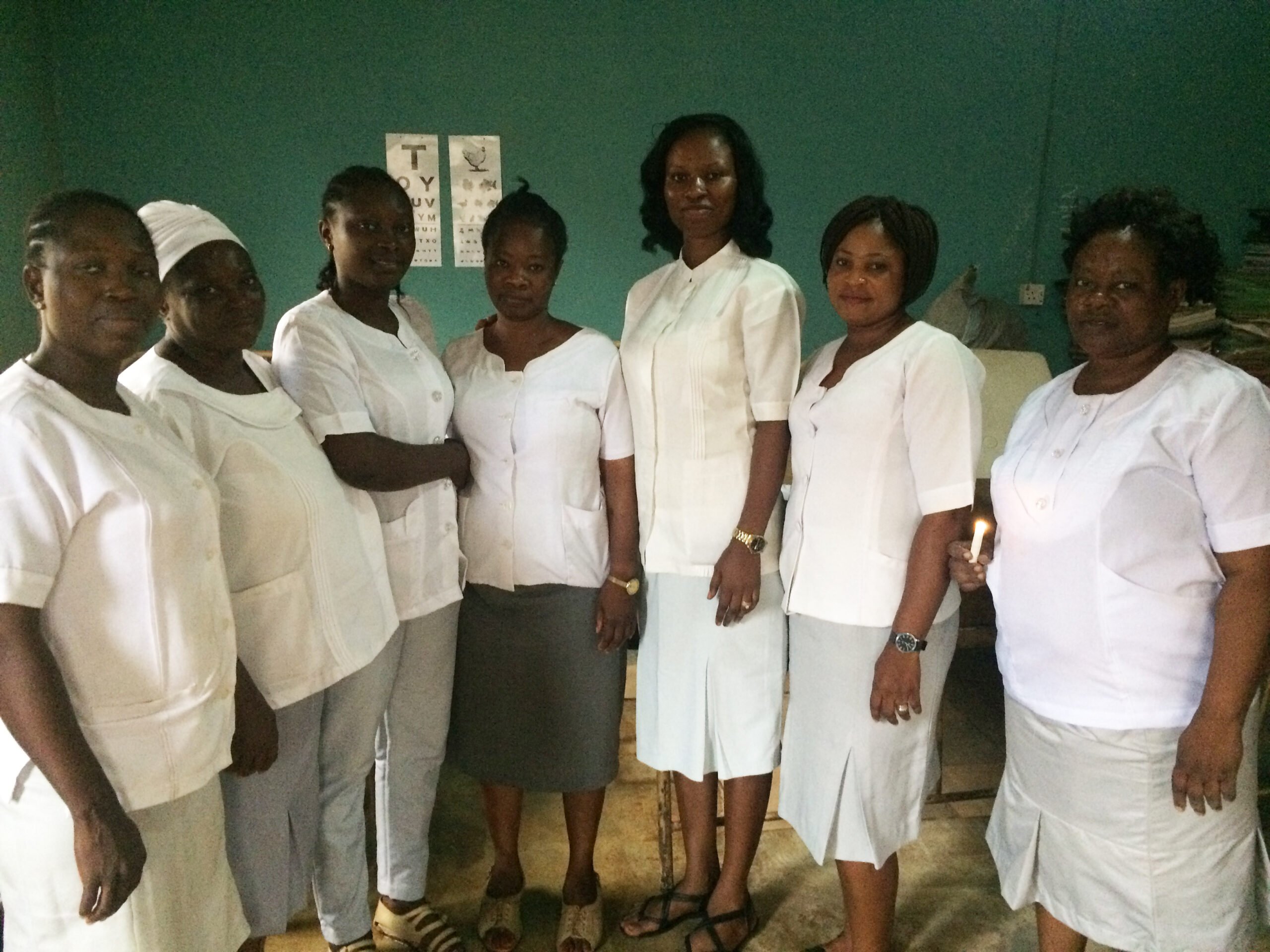
These dedicated women provide frontline health care at Primary Health Centres and in communities. They received two days of training under the Child Eye Health Programme to screen children for eye health problems, using Snellen charts and a pen torch, and in how to educate families and children to look after their eyes. They were also trained to provide basic eye medicines. They are now arranging visits to schools and communities, to share messages about eye health.
Our final visit of the day was to the house of Imam Alhaji Mugagi Mojeed, Chief Imam of the Central Mosque in the Beere community of Ibadan. He is also the traditional leader of his community. He lives with his wife and children in a traditional house in a densely populated area, reached from the road through narrow passageways full of people and goats and chickens.
During the visit with Eleta Eye Clinic, Imam Mojeed invited another Imam from another large mosque to join him, to hear more about the Child Eye Health Programme. The Seeing is Believing Programme Director and Eleta Eye Clinic manager spoke with both imams about the programme’s aims and activities, and encouraged them to promote the importance of child eye health. The imams pledged to support the programme and to call other imams to tell them about the work immediately! They also requested to have screening events at their own mosques, to ensure any children with eye problems in their communities receive care.
Humbled by the imams’ warm welcome and willingness to partner in the work of the programme, I headed back with the rest of the team to debrief over jollof rice and plantain. I left Ibadan struck by the hard work and dedication of all our partners, including the doctors, teachers, health workers and community leaders I met. With your support, they are making a difference to children’s lives and taking action to prevent blindness.
Images: Top and bottom – (From left to right) Imam Mojeed’s wife; Juliana Nathaniel, Programme Director of Seeing is Believing programme in Nigeria; Imam Mojeed; Daniel Anthony, General Manager of ELETA Eye Clinic; another Imam from Ibadan; Rebecca Molyneux, Programme Manager for West Africa at CBM UK; Clement Obayi, Programme Officer of Seeing is Believing programme in Nigeria. Second – Mrs Aduke at St Andrew’s Model School (I). Third – Community Health Extension Workers at Apete Primary Health Centre.

